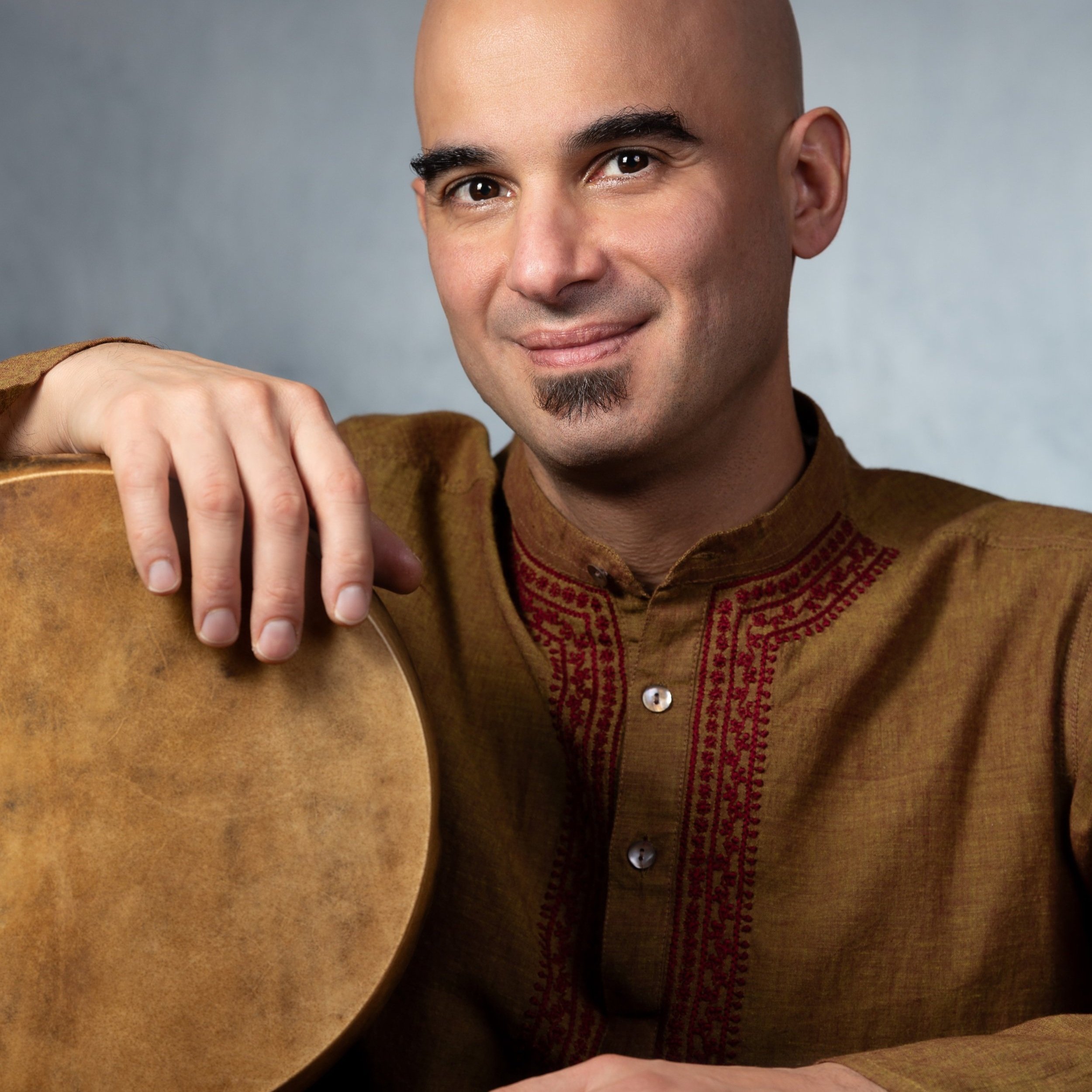If you have a non-refunded ticket from Emel’s last scheduled show in Montreal from September 2024, kindly reach out to us: hello@marsm.ca
Tickets | On sale today
Buy Tickets
EMEL - LIVE IN MONTREAL
Making her highly anticipated Canada debut of MRA, the iconic EMEL MATHLOUTHI آمال المثلوثي invites you to a world of resilience and unity on the powerful, salvific, and feminist MRA.
Join us in Montreal on April 6th @ Le National. Tickets are available now.
“[‘MRA’ is] a feat of ground- breaking production” - Vogue Arabia
“Emel Mathlouthi is The 21st Century's Catalyst for change.” - NPR
Emel Mathlouthi, known as Emel is a Tunisian-American singer-songwriter, musician, arranger and producer. She rose to fame with her protest song "Kelmti Horra" ("My Word is Free"), which became an anthem for the Tunisian revolution and the Arab Spring. Since her debut in 2012 with Kelmti Horra, EMEL has released intense, revolutionary music.
“..like an Arabic cousin of Björk…Protest music rarely comes in such a glossy, glamorous package” - The Times
“EMEL is a remarkable voice... her art-pop elixir blends future-pop tendencies with a deep awareness of her North African roots” - CLASH
On her newest album, MRA, meaning “woman” in Arabic, is an ode to femininity and sisterhood. EMEL deconstructs to rebuild, boldly pressing forward her vision of a female-driven paradigm shift in a world in desperate need of one. That is why every single collaborator on MRA, from producers, featured artists, musicians, and beyond, is a woman — marginalized in recognition, but outsized in ability.
“Emel Mathlouthi’s vision of protest music is searingly contemporary... Her strident voice mixes with haunting minor scales and traditional North African instruments and rhythms, thundering beats and incendiary electronic textures abounded.” - Pitchfork
With the help of artists such as Camélia Jordana, Nayomi, and Alyona Alyona, the result is a multi-genre meld where African trap, batucada, Arabic reggaeton, hip hop, and drum n’ bass rub shoulders seamlessly with vibrant melodies and empowering lyrics sung in 5 different languages & 3 dialects. Having worked alongside such formidable visionaries as Iranian filmmaker Shirin Neshat, and multimedia artist Laurie Anderson, EMEL knows the mutually beneficial strength forged by working with women, sharing a platform and trusting one another. “I've come to discover the true meaning of sisterhood. I'm not interested in the inherited feeling that other women are my rivals anymore,” she says. “I want us to change the system from within by and through women. We are building a new structure, writing a new story where we reclaim the women’s voice and her power.
ABOUT EMEL
Growing up in Tunisia, EMEL listened to everything from classical music to Art Tatum to Celine Dion. After performing in a metal band as a teen, she discovered Joan Baez and the quiet intensity of protest songs. “I was never drawn in the beginning to Arabic music, because I thought it was too rigid,” she says. Interestingly, the dictatorship there was so self centered and assured of its efforts to scare off any rebellion , that they didn’t really see the wind changing and a new generation of ideas emerging. As she explains, “Music was very liberating. To me It had to be revolutionary.” Although she was not free to perform, suffice it to say, EMEL — who had been writing songs since age 10 — would not be silenced, ultimately moving to Paris in 2008, serving as an artist-in-residence at La Cité internationale des Art.
In 2010, EMEL was named the voice of the Arab Spring when her folk-hymnal “Kelmti Horra (My Word Is Free),” once banned, was resurrected as a protest anthem. She’d go on to perform the track at the Nobel Peace Prize concert in Oslo. 2 years later, Among International touring in over 25 countries, she played an underground concert in Baghdad, Iraq, and a few years after that, a highly illegal, all-women performance in Iran, as chronicled in the documentary No Land’s Song. (“Music protects me,” she says now, when asked if she’s ever scared to play in these contexts.) And just this past summer, she performed for Palestinians, who are the subject of her track “Naci En Palestina (I Was Born in Palestine),” in East Jerusalem and the West Bank facing threats and enormous backlash. “My father always taught me to stand up for what's right,” she explains, “about justice, empathy and truth.”
“I’ve always dreamed of reaching people’s hearts, but I ultimately support them in owning their destiny and claiming their path,” EMEL says. “I am a privileged person, because I have my voice and power in music and songs. When I see how much impact my music has had in some parts of the world and how much my songs have helped people in their quest for freedom, I feel really grateful.” MRA is as much about using her voice as it is a rally cry that her fellow women do so freely, with the same opportunities and in the same spaces as their male counterparts. “I don't create things to be consumed,” she continues. “I hope it transcends time, transcends boundaries, transcends cultures. Music can change the world.”
EMEL Online:
GUEST PERFORMERS
NARCY
NARCY is a a polymath based in Montréal, Canada.
Real name Yassin Alsalman, he is predominantly recognized as the first Iraqi voice in the Hip-Hop community. He is an award winning director, a celebrated University professor and a bookshop owner of MAKTABA in Montreal.
Narcy online:
NAYA ALI
Born in Ethiopia and raised in Montreal, Naya Ali is a force in Canada’s hip-hop scene. Known for her distinct vocal tone and masterful flow, she’s performed on global stages like SXSW, Printemps de Bourges, and Dour Festival. Her 2021 album Godspeed: Elevated earned her the prestigious ADISQ English Album of the Year and GAMIQ’s Rap Album of the Year. Her upcoming project We Did the Damn Thing (2025) leans into creative liberation and connection across genres.
Naya Ali online:
ZIYA TABASSIAN
A world-renowned percussionist who bridges Persian classical rhythms with contemporary soundscapes. Based in Quebec, Ziya has performed in over 40 countries and collaborated with the likes of Kronos Quartet, Kayhan Kalhor, and Mercan Dede. His discography blends ancient rhythmic cycles with modern composition, offering audiences an immersive and deeply moving experience.
Ziya Tabassian online:
OPENING ACT
Checkpoint 303 is an avant-garde activist sound art project that creates experimental electronic music raising awareness about the struggle for liberation, justice and self-determination, and against settler-colonialism, occupation and apartheid. Using archives and field recordings predominantly from Palestine and various countries throughout the Arab world, Checkpoint 303 constructs soundscapes that weave cinematic audio with experimental sound processing, breakbeats and glitch.
Checkpoint 303 is led by Tunisian producer SC Mocha and has numerous collaborations with Palestinian artists including Rim Banna, Jawaher Shofani, Ministry of Dubkey, Walaa Sbait and more. Checkpoint 303 has performed shows in Palestine, Tunisia, Egypt, Lebanon, Europe, Australia, USA, Canada, Japan, Chile, etc. Checkpoint 303 was also invited by the British trip-hop band Massive Attack as supporting act for several shows in the UK and France.
Checkpoint303 online:
This show is presented by MARSM Canada with the promo support of LINK Music Lab







